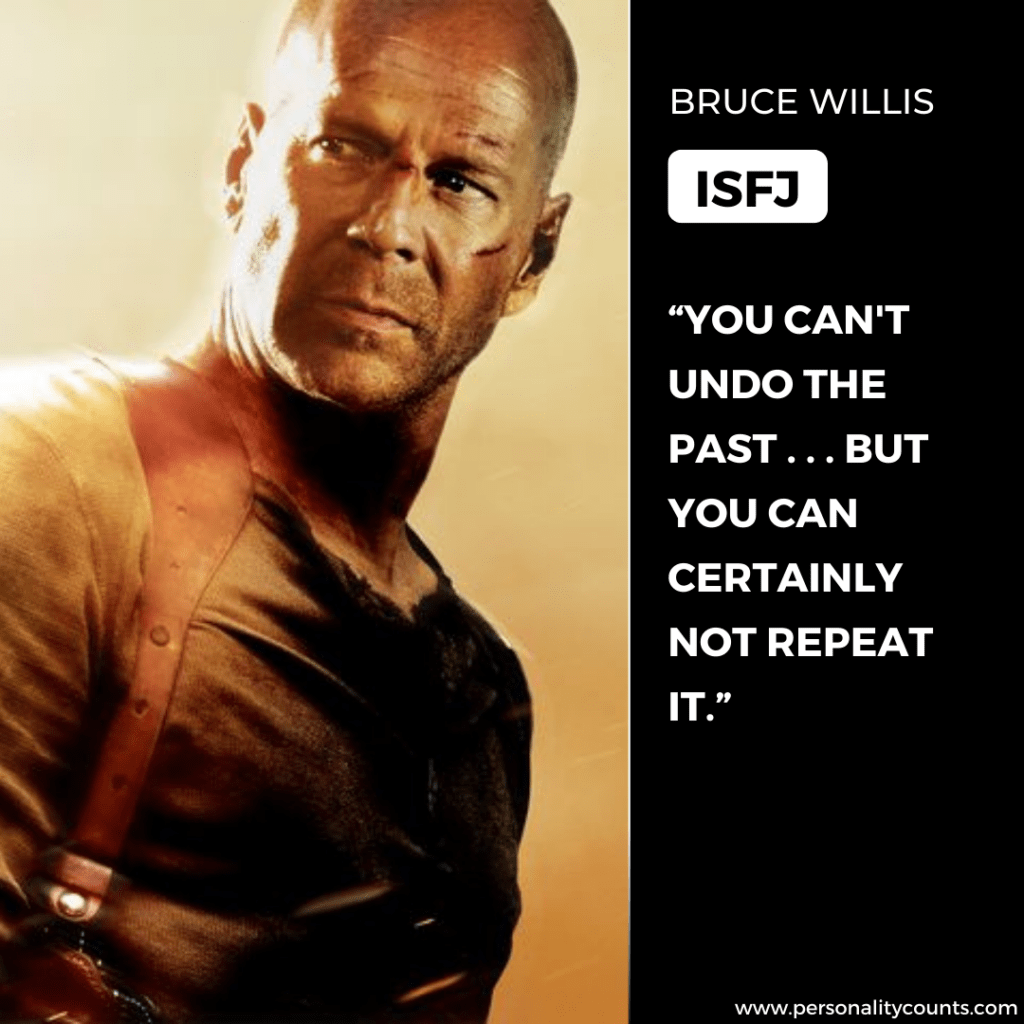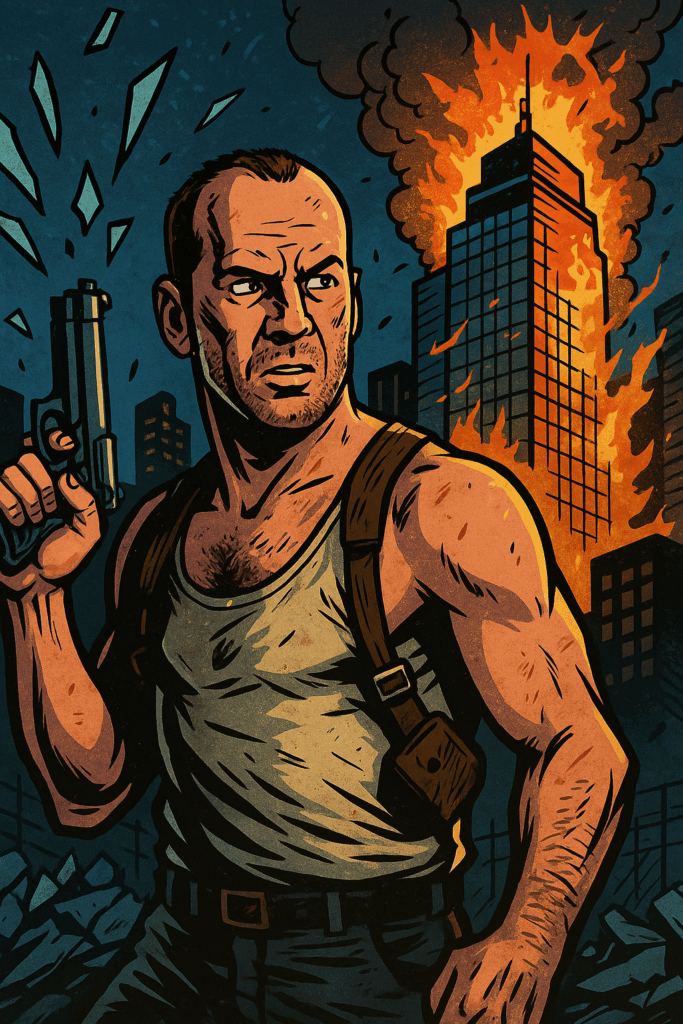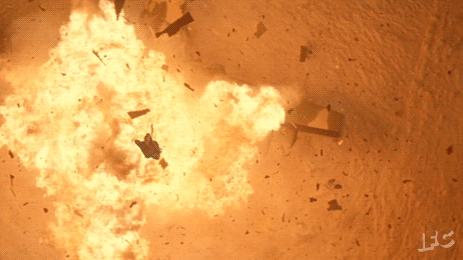
ISFJ
Bruce Willis is often typed as an ISFJ — and if you’ve seen him on screen, it makes perfect sense. ISFJs are steady, protective, and quietly reliable, much like the characters that made Willis a household name. Whether he’s saving hostages in Die Hard or showing emotional vulnerability in The Sixth Sense, he brings a sense of dependability and heart that audiences instantly connect with.
Grit and Duty: Bruce Willis’s ISFJ Spirit in Die Hard

This illustration represents Bruce Willis in a Die Hard-inspired scene, portraying him as a rugged, determined hero in a torn undershirt with pistol in hand. The high-rise setting, shattered glass, and explosions highlight the chaos around him, while his calm focus underscores the ISFJ traits of loyalty, duty, and resilience. Willis’s Introverted Sensing (Si) keeps him grounded as the relatable everyman, while Extraverted Feeling (Fe) shows in his determination to protect others. His resourcefulness reflects Introverted Thinking (Ti), and his ability to adapt under pressure hints at Extraverted Intuition (Ne). The image captures why John McClane became one of cinema’s most enduring action heroes — tough, protective, and human at the core.
Willis’s personality isn’t flashy or attention-seeking; instead, he radiates a grounded confidence. That sense of duty and resilience — hallmarks of an ISFJ — is part of what made John McClane believable as an “everyman” hero, someone who wasn’t larger-than-life, but who got the job done because he had to.
Interesting Facts Linked to Personality Type
- Willis’s characters often embody loyalty and responsibility, ISFJ traits that resonate with audiences.
- Even in explosive action roles, he adds an emotional center — showing that heroes aren’t invincible, they’re human.
- Off-screen, Willis has been praised for his professionalism and dedication to his craft, qualities linked to an ISFJ’s sense of duty.
- He’s equally comfortable in dramatic roles, reflecting his ability to balance strength with quiet empathy.
Examples of How Traits Show in Roles and Public Life
In Die Hard, Willis’s John McClane is a perfect ISFJ archetype — someone thrust into chaos who responds not for glory, but out of duty and love for others. He’s resourceful, resilient, and unwavering even when the odds stack against him.
Then you see another side of Willis in The Sixth Sense, where he delivers a restrained and heartfelt performance. Instead of the action hero, here he plays a compassionate psychologist, reflecting the ISFJ’s natural instinct to protect and support others on an emotional level.
Even in interviews, Willis often comes across as straightforward, grounded, and not overly concerned with celebrity glitz — another hint of the ISFJ preference for substance over showmanship.
What Fans and Aspiring Actors Can Learn
- Ground your strengths: Like Willis, consistency and reliability can be more powerful than flashiness.
- Balance toughness with empathy: Strength isn’t just about action — it’s about connecting emotionally too.
- Stay professional: Dedication to craft and responsibility builds trust with audiences and colleagues alike.
- Lead by example: ISFJs inspire not by demanding the spotlight, but by showing up when it matters.
Famous Quotes
“You can’t undo the past… but you can certainly not repeat it.” — A grounded, no-nonsense perspective that reflects his life philosophy.
“I’m much more proud of being a father than being an actor.” — A reminder of the ISFJ’s priorities: loyalty, love, and protecting what matters most.
Recommended Bruce Willis Memorabilia & Collectibles



